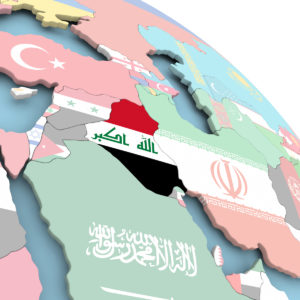Pres. Joe Biden spent much of his time on the campaign trail offering promises of an immigration-friendly presidency in a clear attempt to distance himself from his predecessor. That rhetoric was clearly effective, and now that Biden has taken office, he’s outlined a number of revisions, rollbacks, and initiatives that could transform our immigration system for the better.
Whether his ambitious goals will come to fruition largely remains to be seen, as many of the new president’s proposals have been bombastic in tone and not in action. One such example is Biden’s requested review of the Special Immigrant Visas for Iraqi and Afghan citizens who assisted U.S. military forces in conflict. He has called for reporting on “undue delays” to application processing, among other things. And though his other measures are certainly urgent, this particular program has deep human costs the longer it remains dysfunctional. These reforms can’t wait.
Since the early 2000s, American military forces have been present in Iraq and Afghanistan and have relied on citizens of both countries to act as translators, interpreters, and fill other liaison roles. They did so at great risk, drawing the wrath of ISIS, al-Qaeda, and the Taliban. In the hopes of reciprocating this commitment, Congress authorized a number of Special Immigrant Visa (SIV) programs to allow Iraqis and Afghans to become lawful permanent residents of the U.S. The government does not make it easy––applicants and their immediate family members face an arduous 14-step process in order to be cleared to travel. But by late 2019, more than 89,000 individuals received authorization under these programs.
Now, Biden is faced with a backlog of 70,000 applications from Afghan interpreters and their immediate family members, and 100,000 from Iraqis. It’s hard to overstate how dangerous processing delays are. Volunteer groups estimate that at least 1,000 Afghan and Iraqi linguists applying for visas have been killed while their applications were being processed, not taking into account those who assisted U.S. forces in other capacities. Victims were beheaded, tortured, and left for dead by the country they so dutifully served. Their family members have faced similar fates.
Much of the blame for delays lies with the Trump administration, which was responsible for a precipitous decline in application processing. Though the average wait time exceeded the nine-month window mandated by Congress under the last two presidents, it came in at over three years for applicants under Trump. That timeline was only worsened by the COVID-19 pandemic. Trump never publicly mentioned SIV programs, despite the efforts of veterans and allies (including his fellow Republicans in Congress) to prompt change.
Biden took quick initial action, but he similarly appears to be in no great rush. He has ordered a review of Iraqi and Afghan visa programs to be completed within the next six months. That review, though, is not a guarantee of effective reform––the departments of State, Defense, and Homeland Security have simply been tasked with providing “recommendations to address any concerns identified” and a plan to provide “training, guidance, and oversight” of visa processing. The longer this inadequate system continues to stand in its current state, the more likely it is that our vulnerable allies in Iraq and Afghanistan will die before they get their due opportunities.
Barring questions about whether the U.S. should have gotten involved in Iraq and Afghanistan, it is difficult to dispute the outstanding merit of the translators who assisted American personnel overseas. Our campaigns would not have been possible without their linguistic and logistical support over the years. SIV programs were founded with the hope of reciprocating the commitment that our Afghan and Iraqi allies offered in spite of massive personal risks––it’s about time we fulfill our end of the deal.

